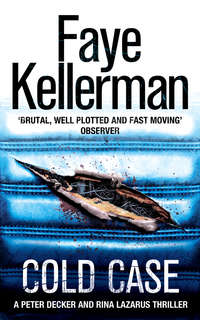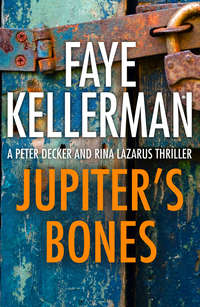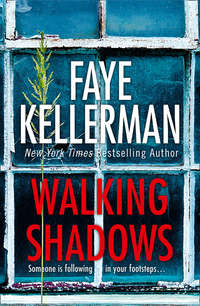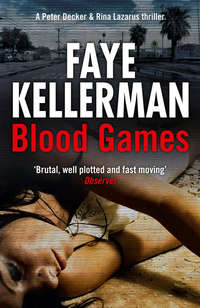
Полная версия
Sanctuary
“Hi, Bryna,” Rina said.
The girl smiled, showing missing side teeth.
“Are you excited about your vacation?”
The girl nodded.
“And you’ve met my sweetie pie, Pessy, who just turned five.” Honey clapped her hands. “So what should we do first, children? How about the zoo? Is that far from where you live, Rina? We can take the bus.”
“I’ll take you as soon as we unload all the luggage.”
Honey squeezed Bryna’s shoulder. “What do you think about that? Would you like to see real lions and tigers?”
Rina peeked in her rearview mirror. The girl seemed interested. Pessy could hardly contain his excitement.
“I wanna see them, Mama. Can I pet them?”
“You can’t pet a lion, Pessy,” Minda said. “Besides, they’re in cages.”
“How do you know about a zoo?” Mendel asked.
“We once went to the Brooklyn Zoo. We took a picnic lunch and spent the day in the park. Remember that, Mama?”
Honey nodded. “Do you remember that, Bryna? You were about two.”
The younger girl shook her head.
Honey smiled. “Wasn’t that fun, Minda?”
“Actually, I felt sorry for the animals,” Minda said. “All caged up.”
“The animals here aren’t in cages,” Rina said.
Bryna’s expression became petrified.
“They’re in enclosures,” Rina said quickly. “They can’t get out and walk around. But they live in big open spaces that are supposed to be like the animal’s natural habitat.”
Again, the car fell silent. Bryna whispered something in her mother’s ear.
Honey smiled. “How would you translate habitat?”
“The animal’s natural home,” Rina said. “It’s a lovely park. You have to see it to appreciate it.”
“The lions can’t get out?” Bryna said.
“No.”
“What happens if they do get out?”
“They just don’t, Bryna.”
“But if they do?”
“They take a gun and shoot them, Bryna,” Minda said. “And if you don’t behave, they shoot you, too.”
“Minda!” Honey was exasperated. “Your sister’s talking stupid, Bryna. Don’t pay attention to her.”
“I’ll see the lions, Mama,” Pessy said, bravely.
Honey tousled his kippah. “Isn’t he a doll, Rina?”
“Yes.”
“Speaking of dolls, you have a really cute one in front.”
“I love her.”
“What’s her name?”
“Channah,” Rina said, using her Hebrew name.
“Hello, Channaleh,” Honey cooed. “You must be enjoying her so much.”
“Very much.”
“And your husband?”
“He’s in seventh heaven.”
“He wasn’t mad it wasn’t a boy?”
“No, not at all.”
“That’s nice. Some men are real strange that way.”
Rina didn’t answer.
“Every child is a gift from Hashem,” Honey said.
“Absolutely.”
Honey scratched her wig. “Boy, girl? Who cares?”
“I certainly don’t.”
“Of course, husbands do like to learn with their sons. Gershon liked it when Pessy was born. Made a big deal about now having mezuman.”
Rina didn’t answer. Mezuman—a quorum of three men—was needed to recite a special blessing before Birkat HaMazon, the grace after meals. When the boys got big, Gershon could now say the extra blessing each time he ate.
Rina said to Mendel, “Your father must enjoy learning with you.”
Mendel didn’t answer. His expression said it was none of her business. Honey hadn’t noticed, as she was back observing the scenery. Eyes focused out the window widened as the car passed an industrial park, its walkways and parking lots lined with palms. She took her younger children’s hands. “Those are palm trees, kids! Aren’t they just majestic and beautiful? Don’t you feel like you’re in a tropical rain forest?”
Rina re-eyed the industrial park. It took a big stretch to imagine a tropical rain forest, but she said nothing. The kids were also quiet, perplexed by their mother’s enthusiasm.
Honey laughed softly. “I keep forgetting. They haven’t grown up with TV and all those kinds of fun picture books. They have no idea what tropical means.”
10
The recent rains had not only greened the mountains but had washed the rankness from the streets of metro LA. As in most cities, the downtown area was hardly pastoral, but it wasn’t as beaten as others Decker had seen. It was a mixture of gentrification and seediness, a city with an identity problem. Central LA played host to the seat of city government as well as a few fine hotels. In addition, the area had the old, established banking and law firms. But there was more to downtown than just maintaining the past.
Signs of urban renewal—the recently constructed neon-green convention center complex, a top-of-the-line apartment city, a spanking new library. Like the phoenix, the building was resurrected from the ashes of the old one. Decker heard people talking about the city going down the tubes, yet he remained optimistic. Sure he’d seen the worst aspects of human nature. Yet he’d also seen plenty of everyday heroes—ordinary men and women who had risked their lives to help others. He wasn’t just a fair-weather Angelino. He was in it for the long haul.
Today, Decker’s spirits were high. It was the weather. The air was crisp, the sky as soft as cashmere, gauzed with filmy, mother-of-pearl clouds. Tall buildings were bronzed by the low sun, the beams bouncing off glass and metal. The urban decay seemed softened as if photographed through a hairsprayed lens. There was a lot of foot traffic—the business suits, the immigrants, the homeless, the vendors—but it was flowing smoothly. A steady breeze rippled through the parade of clothing.
He negotiated the unmarked through a series of turns until he found the diamond center—a twenty-story monolith of granite near Sixth and Hill. Luck was with him and he found street parking. He eased the Plymouth curbside and shut off the motor, checking his notes before he went inside. Satisfied, he got out and walked through the center’s doors.
The lobby, like the exterior, was fashioned from the same gray granite and presented as hard as a steel vault. The reception area was fronted by a mountainside of stone which held the building’s directory. On either side were banks of elevators. Decker knew the unit number and pushed the button for the Otis special. The elevator soon opened and out came an array of foreign speech and Chasidic dress. His eyes followed the black robes of the ultra-Orthodox Jews and he almost missed the elevator.
He knew there were lots of Orthodox Jews in the diamond business. He also knew there were lots of secular Israelis like Yalom in the business as well. He wondered how they got along.
Then he wondered if there were other people besides Jews in the business at all.
He got off on the thirteenth floor, walked down a carpeted hall until he got to 1306. The door sign said YALOM AND GOLD, INC. The doorframe held a small, metal-cased mezuzah.
This mezuzah was on the outside doorframe. Yalom knew the difference.
Decker peered down the foyer. Lots of mezuzahs. And lots of closed-circuit cameras. He rang the buzzer to 1306. An accented female voice asked who was there. He answered and was allowed to pass through the portal.
Yalom and Gold, Inc., wasn’t much for decorating. The reception area was basically a carpeted sally port—a passageway from the outside to the inner sanctum. A young, pretty receptionist sat behind a glass cage. She had a coffee-colored complexion set into drawn curtains of shiny, ebony hair. Brown eyes looked him over. Decker smiled and took out his identification.
“One minute,” she said, speaking through a voice amplifier. She picked up the phone. Her lips moved but Decker couldn’t hear what she said. Holding the receiver up to her ear, she said, “May I see your identification again, please?”
Decker took out his shield and accompanying card. The woman looked it over carefully. “Mr. Gold will be right with you.” She turned off her mike and went back to work.
No chitchat with this one. Decker looked around, feeling as if he were about to enter prison. Two more closed-circuit cameras were placed in the upper corners. He thought about waving, then nixed the idea. With no place to sit, he stood in place and rocked on his feet.
A minute later, a fifties-plus man came through the inner door, his appearance slightly unkempt—shirt wrinkled at the collar, tie askew, pants unpressed. He was balding, his salt-and-pepper hair combed to the side. Built solidly with a big chest and thick wrists, he looked like a man used to physical labor, uncomfortable in the black suit he was wearing. His eyes seemed sharp, his expression marked with suspicion. But he held out his hand in an effort to appear friendly. Decker took the proffered hand.
“All night I’ve been making phone calls.” The man also had a thick accent. “It’s meshuga, Arik taking off like this. It doesn’t make sense.”
“Shaul Gold?” Decker asked.
“Yes, yes, of course.” Gold was irritated. “Who else would I be? Let’s go in the office. Yochevet is trustworthy but she has a big mouth.”
“Not as big as yours,” the receptionist’s amplified voice piped in.
Gold waved her off but she didn’t seem offended. “This way.”
Yochevet buzzed them through. Decker followed Gold down a short hallway into an office as bright as an atrium. Two walls of glass allowing a full view of the action from a thousand feet up. Not a place for an acrophobic. Or a claustrophobic.
Because the office was tiny.
It was set up like a lunch counter. Two stools sat tucked under a black Formica bartop. Gold pulled out a stool and motioned Decker to sit. He went around to the other side and sat as well, behind him a panoramic view of Pershing Square still under construction. At Gold’s right was a brushed-steel vault. Above the safe were TV monitors showing the front entrance as well as the sally port. So far, the coast was clear. Between the TV monitors was a picture of the recently deceased Lubavitcher Rebbe. He wore a black hat that covered his head and a full beard took up most of his face. But it was easy to see the great Rav was smiling in the photo—the kind, crinkly eyes.
Since Arik had been described as anti-religious, Decker wondered if the picture of the rabbi was Gold’s doing. He didn’t seem religious, though. He wasn’t wearing a yarmulke.
Decker’s eyes went back to the counter. On the top was a scale, a scoop, a jeweler’s loupe, and a two-by-two desk calendar, each square marked with appointments and obligations in multicolored inks and pencil. On the fifteenth, spilling over to the sixteenth, sat a heap of loose diamonds.
Decker kept his face flat, but was floored. Thousands of dollars of gems carelessly scattered on an old, marked-up calendar. Gold fingered them gently.
“I’ll finish up later.” In one clean motion, Gold picked up the scoop and swooped the stones off the calendar. He stopped and studied Decker. “Unless you’re interested. I give you a good price.”
Decker smiled. “Some other time.”
Gold said, “Once a salesman …” He poured the diamonds into an envelope and stowed them behind the counter. His features weren’t bad—light, gentle eyes softened a strong chin and a bulbous nose—the kind that comes from genes rather than booze. Gold rubbed his arms. “Sure you’re not interested? It’s a new shipment.”
“Positive,” Decker said. “Do you always leave your diamonds in the open like that?”
Gold’s eyes met Decker’s straight on. “I have a gun under the counter. Someone starts something, I finish it. You want to see my license?”
“Not necessary.”
Gold said, “Besides, you’re the police. If you steal from me, you’re in worse trouble than me.”
“How do you know I’m the police?”
“I saw your ID through the cameras when you showed it to Yochevet. If I don’t like what I see, I don’t buzz you in.” Gold rotated his neck and pointed to the TV monitors. “We’ve got cameras and more cameras. On the outside, on the inside. The system works so you can’t open the outside door and the inside door at the same time. For my protection. Still, everyone here walks around looking over their shoulders.”
“You’ve had incidents?”
“We’ve had robberies. Terrible.” Gold shook his head. “One man was beaten so bad he almost died. Why you think I got a gun? Six years I spent in the Israeli army. One thing it does is make you comfortable with guns. That’s a good thing. When you don’t know what you’re doing, that’s when you screw up.”
“The old man who was beaten,” Decker said. “Did they mug him in the hallway or come into his office?”
“In the hallway. But there have been muggings in both places.”
“Does Arik have a gun?” Decker asked.
“This is a shared office. We share the gun. So far, no need for it, Baruch Hashem.”
“Does Arik have a gun at home?”
Gold was quiet for a moment. “No, I don’t think so. He didn’t want guns around the house because of the boys. Teenage boys can do some very dumb things.”
“His boys ever do anything real dumb?”
Gold shrugged. “I suppose, yes. When I was a teenager, I did dumb things. I’m sure Arik did dumb things, too. That’s why I’m nervous about him. He can be reckless.”
Decker took out his notebook. “Anything different going on in his life as far as you could tell?”
“As far as I can tell, no.” Gold shook his head. “Arik’s Arik. Quick, sharp, fast-thinking, a big pain in the ass.” He ran his hand over his face. “You want to ask me if he has enemies?”
“Does he?” Decker said.
“Arik has many people who hate him. Me? I can’t stand the bastard. He’s reckless, but he’s also stingy. He hoards and hoards! I keep telling him we don’t make money by keeping diamonds, only by selling. But I admit a good thing about Arik. He has a nose for top dollar. Like I say, he is very sharp. He knows when to buy, when to sell.”
“And what do you know?”
“I know how to sell,” Gold said. “Arik and I are good for each other.”
Decker said, “Are you also good for Mrs. Yalom?”
Gold’s eyes narrowed. “You can explain that?”
“Mr. Gold, why is your Lexus parked outside Yalom’s house on an average of two days a week during daylight hours?”
Gold broke into laughter. “You think something naughty is going on between me and Dalia? You have a very dirty mind, Sergeant.”
“Can you answer the question?”
“I’m doing business with my partner,” Gold said. “Real business.”
“You do business with Mr. Yalom at his house?”
“All the time. Like you saw—about two, three days a week.”
“Then why bother with the office?”
“For the clients.”
Gold’s face was unreadable. Decker didn’t buy his story. “Mrs. Yalom doesn’t get in your way?”
“Dalia works. Even if she’s home, I rarely see her. We go into Arik’s office, shut the door …” Gold shrugged. “Certain things are better discussed away from Yochevet.”
“You’re not worried about Dalia hearing things?”
Gold remained stone-faced. “No.”
Six years in the Israeli army. Guy’s a tough cookie. Decker said, “And you haven’t seen or heard from Mr. Yalom in the past two days?”
“Nothing. I’m very concerned. Maybe he got too reckless.” Gold took out a pack of cigarettes. “Do you mind?”
Decker shook his head.
“Yochie hates it.” Gold lit up. “Says I smell up the office. That girl has a big mouth.”
“Why do you keep her?”
“Because she’s good.”
Good in what capacity? Decker said, “Tell me about Mr. Yalom.”
“I told you all I know.”
“That Mr. Yalom is stingy. How stingy could he be, living in a house like that?”
“That’s for Dalia.” Gold blew out smoke. “The house was bought with her money.”
Decker perked up. “Dalia has money?”
Gold nodded. “Her father is a very wealthy diamond dealer in Israel. When she met Arik, he was nothing but a poor stonecutter.”
“I thought his family had money … jewels smuggled out from Europe.”
“Yes, the Yalom family owns a few nice pieces of jewelry. But nothing compared to Mr. Menkovitz.” Gold took a final puff of his smoke, then crushed the butt. “It was Dalia’s father who gave Arik money to invest in diamonds. She set him up.”
“Is it a sore spot with Mr. Yalom?” Decker asked. “His wife setting him up?”
“Mah pitom?” Gold said. “Why should it be a sore spot? Arik has done very well by himself.”
Decker said, “But Dalia still has independent wealth?”
Gold said, “Her father takes care of her.”
Decker now wondered if someone was out to get Dalia. Who would gain from her demise? First, Arik, then her sons. Maybe this was all some messy family affair. He said, “I heard Arik didn’t get along with his sons.”
Gold said, “Where’d you hear that?”
“Is it true?”
Gold rubbed his chin. “Does Arik fight with his boys? Of course he does. But that doesn’t mean he doesn’t love them.”
“What about Mrs. Yalom? Does she fight with the boys?”
“Dalia? No.” Gold’s face softened. “Dalia doesn’t fight with anyone. She is soft. Like her mother.”
“You know the family?”
“I knew them before Arik did. I’m old family friend. I grew up in the neighborhood. I baby-sat Dalia.”
“How’d she meet Arik?”
“Her father introduced them.”
“And you approved of the match?”
Gold studied Decker. “What does my opinion matter? The family approved. Dalia approved. They get married. End of story.”
“But you’re still in the picture.”
Gold smiled. “Arik invited me in the business. I take opportunity. That is all, Mr. Sergeant. That is all.”
Come back to that one, Decker thought. He said, “I heard Arik fought a lot with Dov.”
“He can be hard on him, yes.”
“What about the older son?” Decker asked. “How does Gil get along with his father?”
“Gil is easygoing. And he’s no student. He knows eventually he’ll have to come into the business. Arik knows it, too. He’s not concerned with Gil. Dov is another story … brighter. He has options. So he wants nothing to do with the business. That makes Arik feel bad. What does this have to do with the family missing?”
“I’m just wondering if the family didn’t have one bad fight and things got out of hand.”
Gold genuinely looked horrified. “You think one of the boys … not a chance in hell!”
Decker said nothing.
“I don’t care what you’ve seen in your America.” He pointed to himself. “I know Arik’s boys. They are good kids. It is impossible. Start thinking about other things because you are on the wrong side.”
The diamond dealer was vehement in his opinion. Was he doing it on purpose to bring attention to the boys? Take the search away from him? Decker started thinking. Who else might benefit from Yalom’s demise? Perhaps Gold himself.
“Orit last saw her brother around two-thirty Friday afternoon,” Decker said. “Did you see him after that?”
Gold thought a moment, then checked a desk calendar. “Two-thirty Friday, I was just finishing up business with a client.” His finger scanned down the calendar. “Last I saw Arik was maybe Friday morning around … ten.”
“You have no idea where the family might have gone?”
“None whatsoever. I don’t mind telling you I’m scared for the family. People think they have plenty of money just lying around the house. What we have is inventory and investments, but burglar doesn’t know that. He puts gun to your head anyway. Says open the vault. He doesn’t see cash, he sees stones that are hard to fence.”
“I take it you’ve checked the vault?”
“As soon as you called and told me about the family is gone, I checked the common vault. Nothing is missing.”
“Does Arik have his own private inventory?”
“I think no.”
“You’re sure?”
“Yes. We’re partners.”
Decker smiled. “You’ve never heard of partners cheating each other?”
Gold waved him off. “That is not a problem, I promise you.”
Decker paused. “You check up on him, don’t you, Mr. Gold.”
“Cheating is not a problem,” Gold stated once again.
“I’m just wondering if Mr. Yalom has diamonds that are not part of your business partnership. Maybe diamonds acquired from Mrs. Yalom’s wealth.”
Gold shrugged, then lit another cigarette. “Maybe. I never thought about that … but maybe.”
“The thought seems to bother you.”
Gold hid behind a cloud of nicotine. “What do I care what Arik does with his money?”
Decker waved the smoke away from his face but didn’t answer.
Gold put out the cigarette. “Why do you ask about Arik’s money?”
“If somebody robbed him, Mr. Gold, I’m wondering what they would take from the house if the vault is here in the diamond center.”
“Maybe Arik has a safe at home. We’re partners, but I don’t know everything about his personal life.”
“How’d you two become partners?”
“He brought me into the business as a salesman. Arik is a terrible salesman.” Gold sat back in his chair. “I can sell anything. Believe me, Mr. Detective, I could have even sold you a diamond if I want. So it works well that Arik picks the diamonds and says when to sell. And I get the clients and match the stones to the clients. I just wish we could get more of the good stuff. It’s not always easy to pick up stones at the right price. They keep the quantity limited, you know.”
“Who does?”
“VerHauten. You know about them?”
“It’s a South African diamond company, isn’t it?”
“More than a company. VerHauten is a nation to itself.”
“Tell me about them.”
“What’s to tell? They own eighty percent of the diamond mines. VerHauten mines a little more, they bring in more diamonds to sell and they make money. They mine less, they bring in less diamonds, the price of diamonds goes up, they make money, too. They not only own the mines, they own the distribution of the stones. No one can compete against them.”
Decker sensed that Gold was talking from a point of personal experience. “You’ve tried competing with them?”
Gold burst into laughter. “Me? I’m nothing. A glob of spit. I can’t compete with VerHauten.” Again, he laughed. “No, it’s impossible even for the big dealers, let alone small potatoes like me and Arik. No one even tries.”
“You said they own eighty percent of the mines,” Decker said. “Who owns the other twenty percent?”
“There are other mines—in Africa, in Canada, in Russia,” Gold said. “Big mines in Russia in the north area. A region called Yakutia. They are government mines. The last I heard the Russian government was setting up a joint venture with VerHauten. It’s a smart move. The Russians may be able to mine diamonds, but they can’t distribute them without VerHauten’s blessing.”
“Why not?”
“Where would they set up shop?”
“Why not in Russia?”
“The minute VerHauten finds out about competitors, they either buy them out or undersell them. They own the market. What does this have to do with Arik?”
Decker gave a noncommittal shrug. “You said Arik was a hoarder. Maybe he was hoarding too much for VerHauten’s liking.”
Gold grinned. “You know how much inventory we have? Around two million. It seems like a big number, but no one can survive in this business if their inventory drops below five or six hundred thousand. You don’t have stones on hand, buyers find other people. So we put money in stones. You know what VerHauten’s worth?”
“More than two million,” Decker said, dryly.
“Try three to four billion. I don’t think they lose sleep about Arik and me.”
Decker said, “Still, two million dollars is well worth robbing for.”
“Except that nothing’s missing in the vault.” Gold shook his head. “It doesn’t make sense.”
Decker said, “Do you know of anyone who might want to shut you and Arik down?”
Gold took out another cigarette. “That’s what worries me. Arik can be reckless and rude in dealing with people. Maybe some dealers would like to shut us down. They know we have the good stones. Not good stones, great stones. I’ve made many good contacts over the years.”









